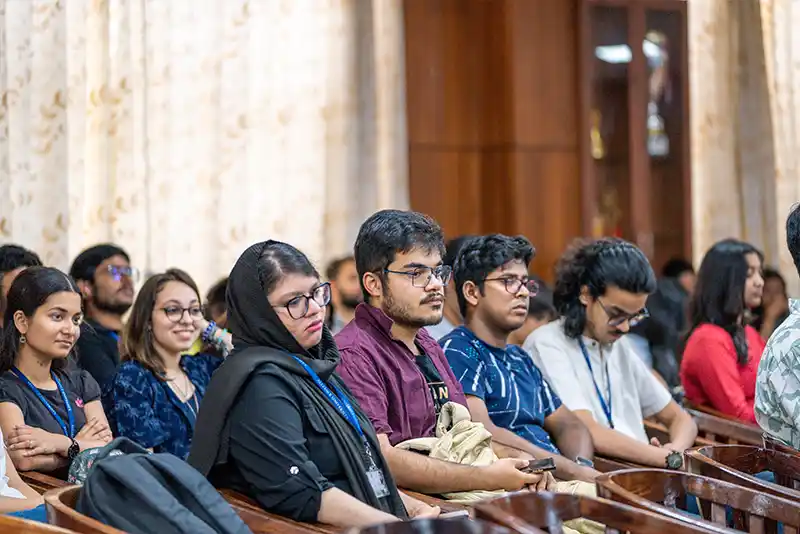Media







Alliance University organised a One-Day National Seminar on Ancient Indian Economic and Political Thought, with a focused exploration of the Arthashastra and related classical texts. The seminar was held under the Indian Knowledge Systems initiative and brought together scholars, educators, and students to examine the contemporary relevance of ancient Indian frameworks.
Focus on Classical Texts and Indigenous Frameworks
The seminar centred around the concept of artha as a purushartha, examining its role in linking material well-being with ethical governance and social responsibility. Discussions drew from classical sources including the Arthashastra, Dharmashastras, and Niti Shastras, offering insights into the integrated nature of ancient Indian approaches to statecraft, economy, and social order.
Sessions addressed core ideas in taxation, administrative governance, public policy, and military strategy, showcasing how these texts provided a structured understanding of power, welfare, and legal authority. Emphasis was placed on the holistic and contextual thinking that underpinned ancient Indian political and economic systems.
Themes Connecting Ancient Thought and Present Contexts
Speakers analysed how classical Indian knowledge continues to influence present-day ideas in governance and economic planning. Presentations highlighted how the Arthashastra offered models for strategic planning, resource management, law-making, and diplomacy. The discussions also explored how these frameworks contributed to the formation of stable political institutions and ethical leadership.
The seminar created a platform for cross-disciplinary dialogue, linking political science, economics, law, and philosophy with traditional knowledge systems. Comparative perspectives offered during the sessions encouraged critical engagement with both ancient and modern approaches to governance and societal development.
Platform for Academic Exchange and Research Dialogue
Organised with the objective of fostering interest in indigenous intellectual traditions, the seminar supported the university’s ongoing efforts to integrate Indian Knowledge Systems into mainstream academic discourse. Scholars and participants discussed ways to incorporate ancient insights into contemporary curricula and research.
The sessions also addressed the importance of contextualising knowledge through historical and cultural lenses, encouraging a broader understanding of how classical Indian texts responded to real-world challenges of their time.
Reinforcing Indian Intellectual Heritage
The seminar concluded with reflections on the relevance of ancient Indian texts in shaping enduring frameworks for public policy, leadership, and economic planning. Discussions reaffirmed the value of indigenous sources in contributing to global knowledge systems.
The event served as a reminder of the intellectual depth embedded in Indian traditions and the potential of these texts to inform policy, ethics, and administration in the present era. By encouraging critical study of classical sources, Alliance University continues to support scholarship that bridges the past with the present.
The seminar aligned with the university’s commitment to academic exploration and cultural insight, offering a space for sustained engagement with India’s rich philosophical and political legacy.
